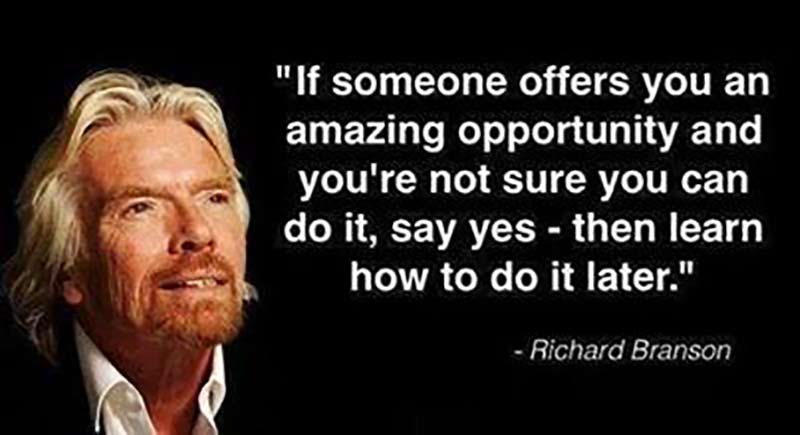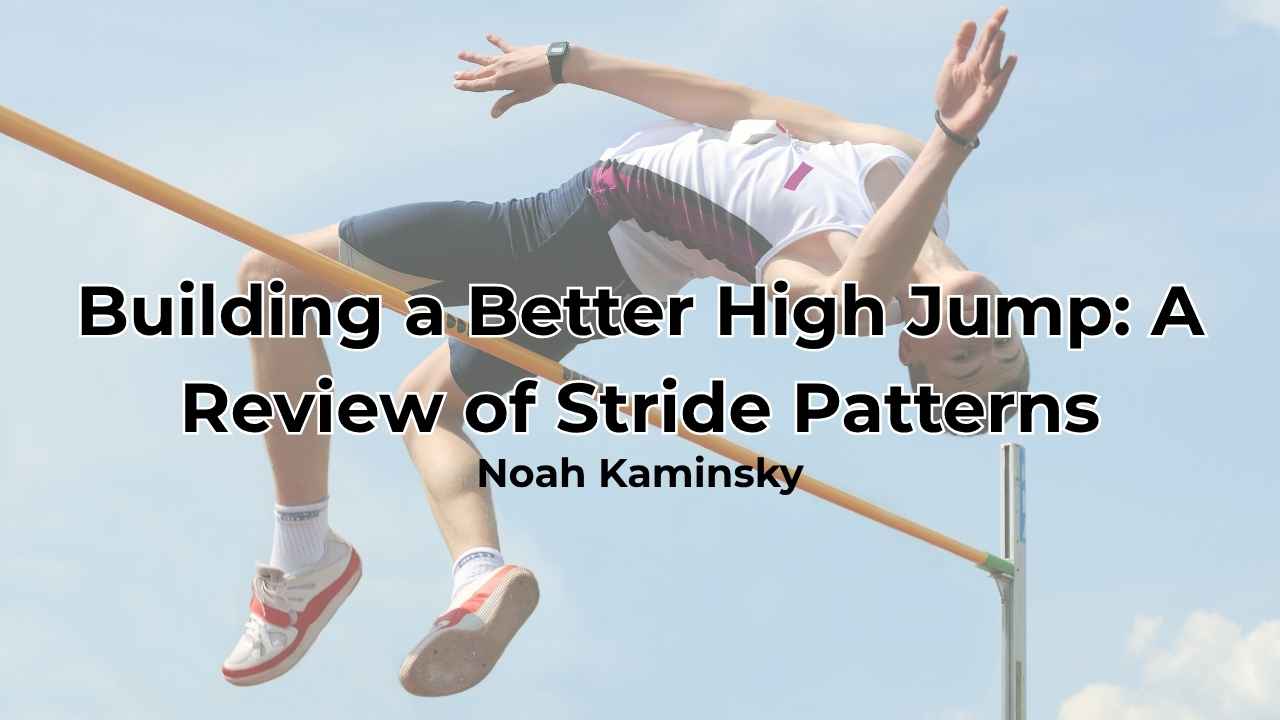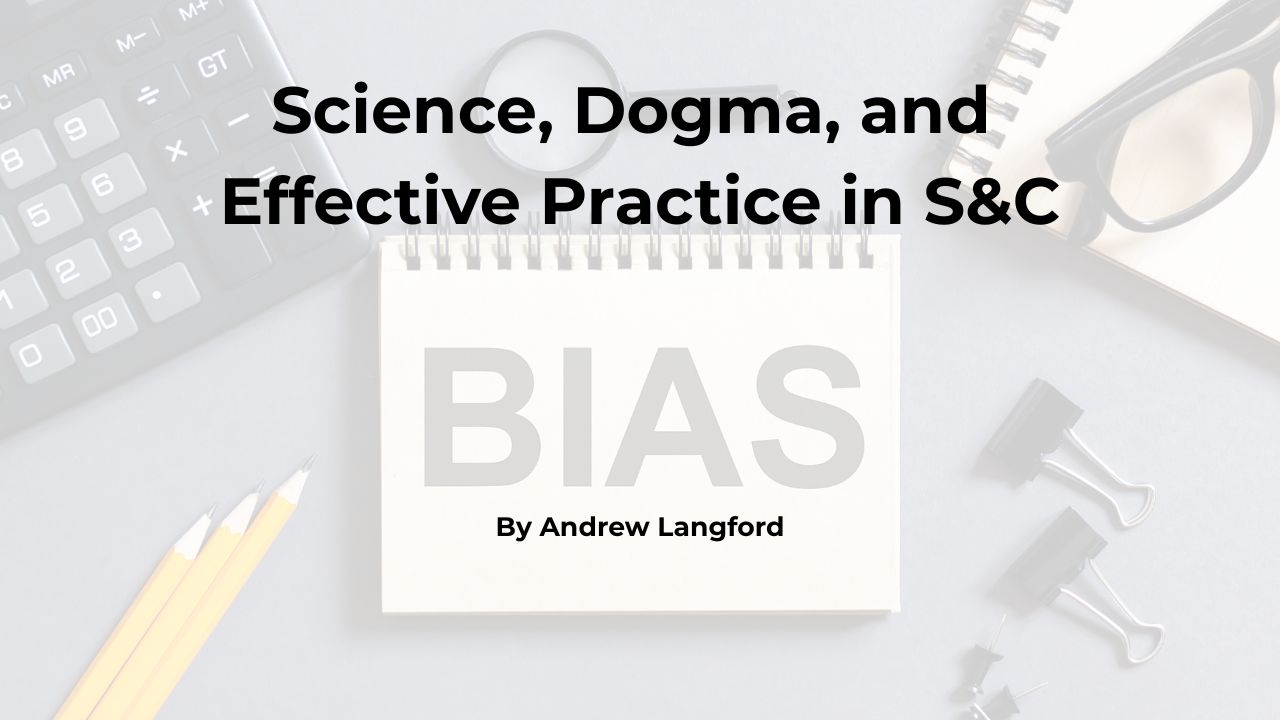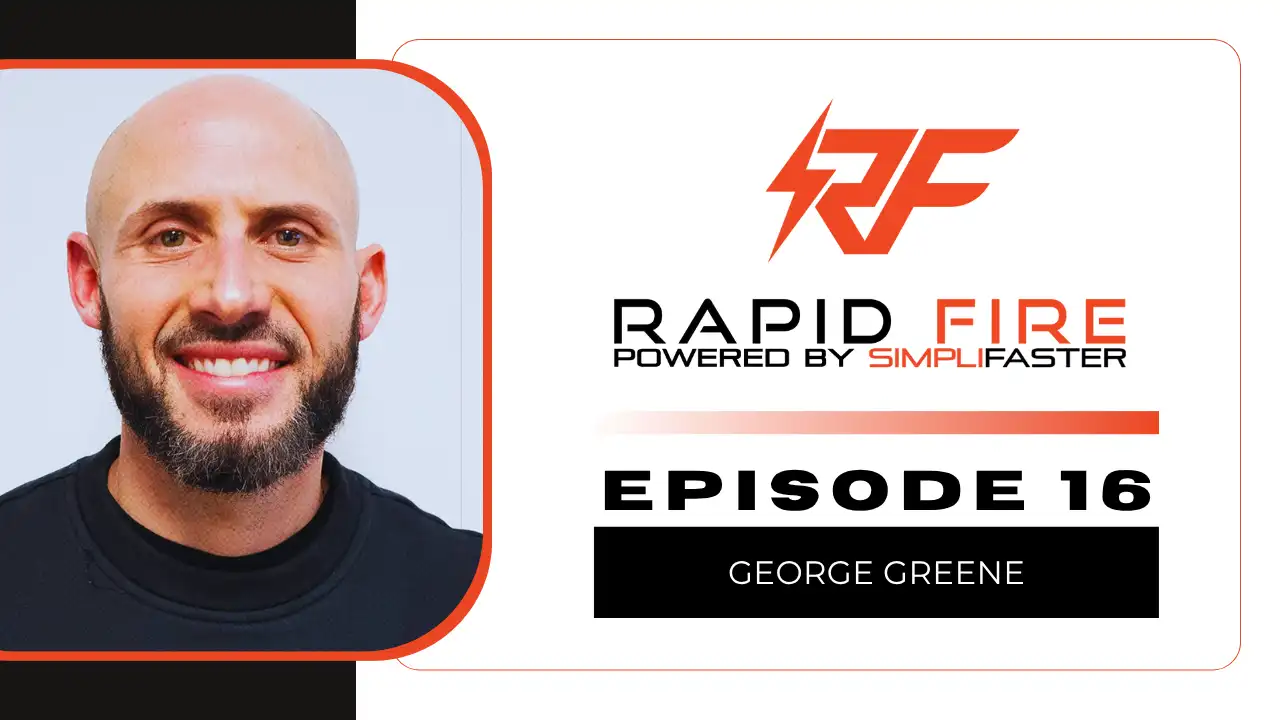[mashshare]

I wanted to share this because there will be other coaches out there who are trying to get a foot in the door or on the first rung of the ladder and struggling immensely. I think that this could also have broader reach to anyone interested or involved in working in performance sport, from physios to nutritionists to sports psychologists.
There are many other stories from coaches around the globe that are no doubt grander and more exciting. This is just my story of where I am, how I got there, and what I did to arrive at my present location. But I think it tells an important story about the power of persistence.
Figuring It All Out
I’ve always loved sport. Soccer mostly, but just about any sport. Academically, I was always in the top of my class. I was quite good at the read-and-remember style of education that was so prevalent. Although I did not struggle at school, P.E. (Physical Education) was always my favorite class. I also had an aptitude for science and related subjects like math. When I realized that I had no chance of being a professional athlete, of any kind, and it came time to decide on a university course, my thoughts went like this: “I like sport and I’m good at science. Sports Science seems the obvious choice.”
So I ended up studying Sports Science at the University of Glasgow. The further I got into my studies, the more I realized that strength and conditioning was the particular area in which I had the most interest. I’d rather be on the field or court or in the gym than in the lab.
Perhaps naïvely, I did not really start looking for practical experience until my final year. Maybe part of that was that, in Scottish universities, you don’t study sports science specifically in your first two years, just general courses such as biology. Therefore, it was later into my academic career when I realized what I really wanted to do.
Academically, the course at Glasgow University was fantastic. However, the opportunities to get my hands dirty were not plentiful and I had to develop my own major real-life sports science and S&C opportunities.
Because I did not have enough work experience to sustain me through my degree, I began to search the local area for sports teams operating at a decent level who might speak to me and let me come and intern or shadow a coach. I immediately discounted Rangers and Celtic as the two biggest sports institutions in Scotland. Falkirk FC, also playing in the top division in Scottish soccer, was only a train and a bus journey away. So I went through their website, contacted their sports scientist, and hassled them for a meeting.
After talking via phone and email, they agreed to let me come down and shadow the existing strength coach. Excellent. A proper start with a full-time, professional sports team playing at the highest level in that country. (No jokes about the state of Scottish soccer, please!) On my way to attend the first-ever session, the head of sports science phoned me. The full-time strength coach was off and I would be leading the session. Fake it ’til you make it, right?! I’d never led a strength and conditioning session before. The most I had done before this was gym training with my brother following bodybuilder splits.
They threw me in the deep end, and it was sink or swim time.

It was great. I loved working with youth footballers to develop their strength and conditioning. I could combine my passion with my work. Over the next year, I spent many evenings with the strength coaches at Falkirk, delivering S&C sessions, undertaking performance testing, and learning my trade.
While undertaking my MSc in Strength and Conditioning at the University of Edinburgh, an opportunity arose to become a speed and development coach with academy players at the Scottish Rugby Union. This allowed me to diversify my experience, somewhat.
Developing a Network From Scratch
When my studies came to an end, I was working three jobs: full-time in a bar, part-time with a football club, and part-time with the National Rugby Union. It wasn’t sustainable and it wasn’t going to pay the bills. I ultimately moved back to my family home in London while I looked for a full-time S&C role.
Because I was back in the South of England with few connections, I had to seek out new opportunities. I took to online research again and found out that the head of academy strength and conditioning at the London Wasps RFC was my old rugby coach when I was a youth. I contacted him and was able to arrange a voluntary coaching opportunity with their academy players. The travel was complicated and time-consuming and the work was not full-time. However, it gave me some contacts and I hoped opportunities would develop.
During this period, I interviewed for a variety of sports science and strength and conditioning jobs all over the country. From Aberdeen to Manchester to South East England and everywhere else. I applied to every single job that came up. It was then that I began to really understand the importance of a network.
The English Institute of Sport interviewed me for the position of lead strength coach for English squash. Despite performing very well in the interview, and even being one of only two coaches interviewed who achieved a passing mark on a test they used to separate candidates, I was not selected. At the group interview, I discovered that one of the applicants was a former player who worked there part-time. Going up for the interview was always going to be a wasted journey, no matter how well I performed. That’s not bitterness: I have many more stories like this, as do many of my coaching friends. It’s just a fact of life.
I was beginning to lose faith in securing a full-time role. My family was pushing me towards going into another field, to use my book smarts and qualifications to take some kind of graduate job that paid well. I even attended an interview in London for some business-related job. I bombed. It was awful. My heart just wasn’t in it and the interviewer could tell that immediately.
Sometime around this point, an old university friend contacted me. He was working at the Hong Kong Institute of Sport as a strength and conditioning coach and they were advertising a new role. I applied immediately and was elated to take the job. I knew nothing about Hong Kong; I was just happy to give my career a big shot in the arm.
For the first time in my life, I travelled to Asia. When I moved there, it was my first time living outside of Europe. It was only the second time I had left Europe at all.
Persistence Pays Off
As with anything in life, it’s not all roses. There are things that frustrate and annoy me. But when I stop and look at the positives, these annoyances pale in comparison. This past summer, as we sat and watched the Rio Olympics, I had six athletes taking part in the rowing, long jump, and marathon. I’m not working with any Olympic medal winners…. yet. I plan to in the future.
I have worked with athletes to prepare for the Olympic Games, various World championships, the Asian Games, and other international events. I work with a squash player who is consistently in the Top 20 in the world and who reached a career-high ranking of 12.
Since arriving in Hong Kong, I have met a lot of great coaches, sport scientists, physios, and other support staff. I have travelled to the unrivalled Altis in Phoenix, Arizona, and spent time with Dan Pfaff, Stuart McMillan, and the other staff as they helped prepare World and Olympic champions and world record holders for competition. I attended the NSCA conference in Shanghai and delivered a presentation to an international audience.
Hell, I’ve experienced a lot of cool non-work-related things, too. I visited Fiji, which is the most beautiful holiday destination I have been to, and Thailand as well. Every weekend during the summer, I can take a boat trip off the coast of Hong Kong with my friends and a fridge full of beer, and anchor beside a secluded beach.
None of this would have happened without persistence, downright stubbornness, and a lack of care about hassling people. That first gig I secured with Falkirk came down to hounding the head sports scientist until he allowed me to attend. Then, right from my first day of shadowing, I had my first paying gig in strength and conditioning because the lead strength coach was ill.
There was a time where I wondered if it was all going to work out for me and if I was taking the right path. But having a strong will and determination, and being stubborn, meant I kept at it until the right break arrived. Moving to the other side of the world, when I had never lived outside of Europe before or so far from home by myself, was a big step. But I didn’t give it a second thought.
Keep Growing Your Network
My career path to date is real proof of the statement: “It’s not what you know, it’s who you know.” I wasn’t able to generate the right opportunities. I wasn’t able to leverage my network sufficiently and I had neglected to grow my network. But networking is huge in our highly competitive industry.
Something like 125-150 students came through my undergrad degree, and another 30 or so took the MSc course. Yet, I only know a handful who are currently working in performance sport. Many are personal trainers, P.E. teachers, and even policemen. There is, of course, nothing wrong with choosing these careers. And, no doubt, some of them made a deliberate choice. But I am positive that the vast majority wanted to work in elite sport. It’s just an incredibly tough industry to break into. Knowing the right people opens doors.
Begin developing your network as soon as you can. In general, most coaches and practitioners are happy to help if they have the time. For example, I visited my older brother in Charlotte earlier this year. While I was there, I went online to check out local venues and decided to hit up Mike Young of Athletic Lab and Joe Kenn of the Carolina Panthers. Despite being incredibly busy preparing athletes for the U.S. Olympic trials and the coming NFL season, respectively, they both were able to give me half a day to meet and talk shop and check out their training centers.
Recommendations for Success
As I said at the outset, my story is not special, nor is it necessarily very impressive. There will be many more coaches out there who have achieved more than I have, at a younger age. My story is merely unique to me. But I hope that it helps some aspiring coaches, sports scientists, nutritionists, and any other professional looking to get a start in elite sport.

Here are my recommendations for success in this field, and any other goal you strive for in life:
- Be persistent.
- Don’t take no for an answer.
- Be single-minded. Be stubborn!
- Learn from my mistakes—broaden your horizons. Don’t limit your job hunt to your home country. You may need to take a big step to get the start you need.
- Seek out each and every opportunity.
- Never think you aren’t good enough. Apply anyway—you never know the response you will get.
- Develop a network and leverage it.
- Seek out new environments and experiences, and particularly anyone with a wealth of experience.
- Read as much as possible.
- Collect some qualifications (a degree, maybe a post grad, an industry certificate) but then make it a priority to collect experiences and contacts, too.
Since you’re here…
…we have a small favor to ask. More people are reading SimpliFaster than ever, and each week we bring you compelling content from coaches, sport scientists, and physiotherapists who are devoted to building better athletes. Please take a moment to share the articles on social media, engage the authors with questions and comments below, and link to articles when appropriate if you have a blog or participate on forums of related topics. — SF
[mashshare]




